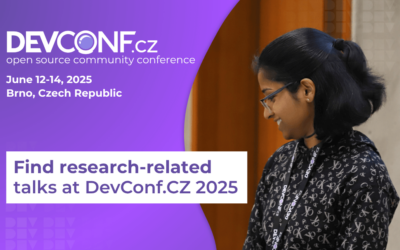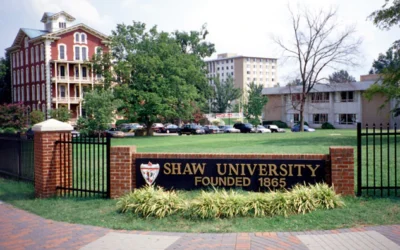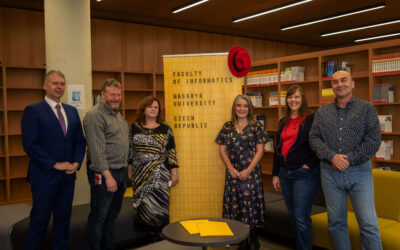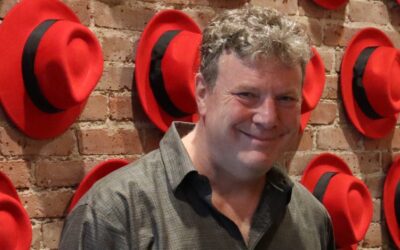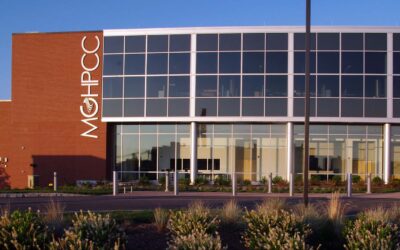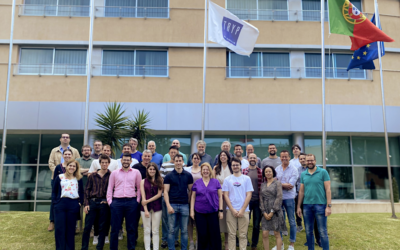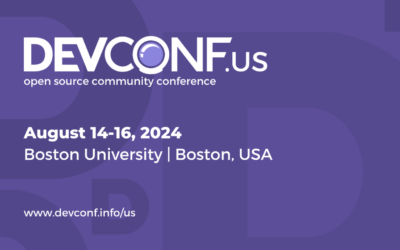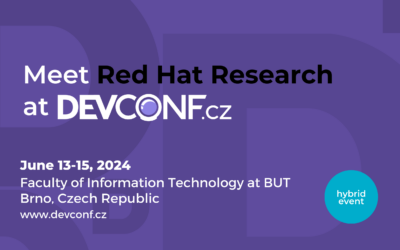By Leigh Griffin
Several strategic projects in AI, service/network management, and the cloud-edge continuum have joined the research team at Red Hat Ireland, based in our Waterford office. Leigh Griffin leads the group.
Red Hat Research engineers in EMEA have long been involved in projects funded by Horizon Europe, an EU grant program that drives innovation, research, and development initiatives with a focus on public-private collaboration and open source technologies.
We’ve recently taken on four of these projects in Waterford. These projects— AC3, CODECO, Green.DAT.AI and INCODE—address a number of key strategic areas for Red Hat around the cloud-edge continuum, AI, and service/network management. The projects have developed close working relationships with our local product engineering teams working on OpenShift AI, Konflux, and Kuadrant, as well as some of our key communities of Fedora and Skupper. Our goal is to integrate the outputs of the projects into our products and communities.

Earlier this year, the Waterford EU projects team gathered at the Cork office, along with a delegation from IBM Research, to present current work and explore future directions. Several project members also presented at DevConf.CZ.
Recent developments in EU projects
AC3
AC3 is a federated cloud-edge infrastructure with deep AI integration that provides a zero-touch approach to application lifecycle management with a focus on green energy and manages resources across the range of environments in a platform-agnostic way. At the Cork meeting, the project team discussed Red Hat’s role in network programmability and how the infrastructure is leveraged by the project’s observatory use case to store and process massive amounts of data. The team will meet with partners from the University of Madrid to assist with the containerization and deployment of their applications and microservices and will assist partners with any testbed issues on the OpenShift clusters.
CODECO
Cognitive Decentralised Edge Cloud Orchestration, or CODECO, is an open source research project that aims to create a Kubernetes plugin to improve the efficiency and robustness of cloud-edge architecture. The platform enables cross-layer orchestration among decentralized data flow, computation, and networking services involving applications that can run on both the edge and on the cloud simultaneously. As part of a consortium of 20 partners working on CODECO, our team is focused on demonstrating that the component we are in charge of can install the other four components of the platform, that it can show necessary data transfer between components via operators (written in Golang), and that the data transfer is secure and safe for both the users and the system.
Green.DAT.AI
GREEN.DAT.AI aims to channel the potential of AI towards the goals of the European Green Deal, by developing novel energy-efficient, large-scale data analytics services, ready-to-use in industrial AI-based systems, while reducing the environmental impact of data management processes. Our main tasks are the metadata broker and vocabulary hub. The metadata broker focuses on enhancing discoverability by tagging datasets with comprehensive metadata detailing quality, format, content, and usage. The vocabulary hub will standardize formats and terminology by applying semantic reasoning to establish a common understanding of key terms, so data is accurately and reliably machine-readable.
INCODE
INCODE stands for INtelligent COllaborative DEployments. The project aims to create an open, secure, and trusted IoT-to-edge-to-cloud compute continuum that will realize the true potential of edge intelligence. The project consortium will design and develop an open platform for the deployment and management of end-user applications over distributed, heterogeneous, and trusted IoT-Edge node infrastructures. Recent milestones include the creation of OpenShift as a service in the OpenSlice catalog in collaboration with our partners at the University of Patras and attending our first face-to face plenary session in Cyprus.
The Waterford EU projects team

Our Academic Outreach program in Waterford has been running for several years, and we’ve built up strong relationships with our local universities, driving a talent pipeline into Red Hat. At the same time, more requests for collaborative research have been coming our way from existing EU partners to our local research center the Walton Institute. To bolster the team, I was able to bring in Colm Dunphy, who supervises our engineering team made up of Alka Nixon, Ben Capper, Clodagh Walsh, Dean Kelly, Paul Power, Ryan Jenkins, and Ray Carroll. Stav Schneider of Red Hat Israel also joined the team, bringing her prior experience from Red Hat Research to the team in coordinating and managing the four EU grant projects we’ve taken on.
Watch out for invites to some show-and-tell sessions where we will cover the projects we are working on!
Learn more about EU Horizon grants and projects
Get details from a demonstration of running AI models in an edge field-deployed device at the CODECO Industrial Workshop.
Find out about the EU-funded cybersecurity consortium CHESS.
Learn about PHYSICS, a finished Horizon 2020 project demonstrating the value of the FaaS paradigm more development and analysis in the cloud continuum.
Get an engineer’s point of view on Horizon Europe collaboration.

These projects are funded by the European Union under Grant Agreements Nos. 101093129,101093069, 101070416, and 101093069. Views and opinions expressed are however those of the author(s) only and do not necessarily reflect those of the European Union or European Research Executive Agency. Neither the European Union nor the granting authority can be held responsible for them.

